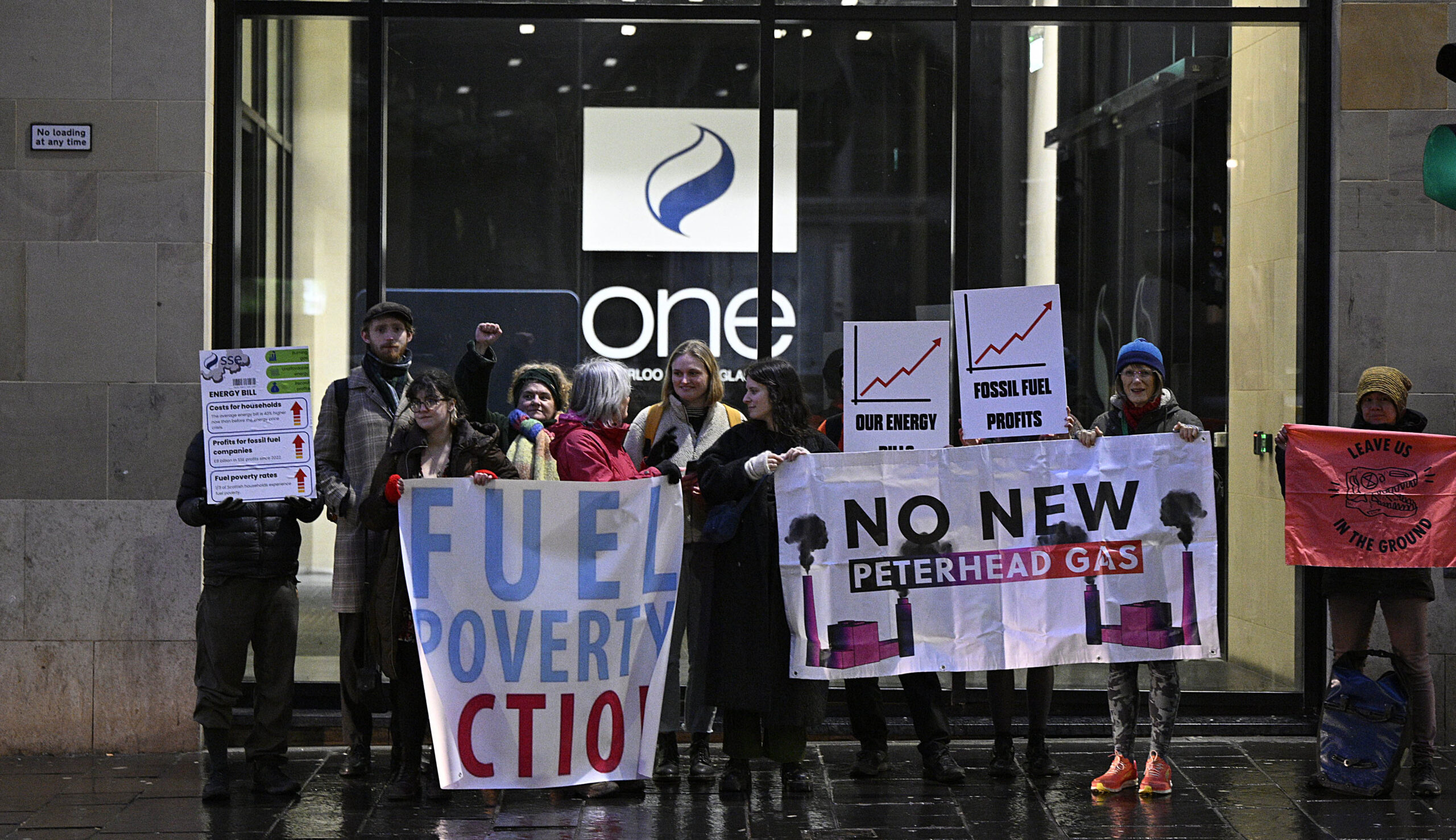
Energy bills are rising again – fossil fuels are the culprit
Energy bills are rising again but there are ideas for how we can break the stranglehold of the fossil fuel industry on our finances.
The energy price cap is rising once again from April 1st, meaning that the average household’s energy bills will be £1849. This is an increase of 6.4% – costing people over £100 more throughout the year compared to under the January price cap.
This follows a series of increases since October last year, with energy bills currently sitting at over 40% higher than winter 2021, before the fossil fuel energy price crisis began.
Given this context, it’s no wonder that people are angry. More than one in three households in Scotland are experiencing fuel poverty, having to choose between having a warm home and other essentials such as food.
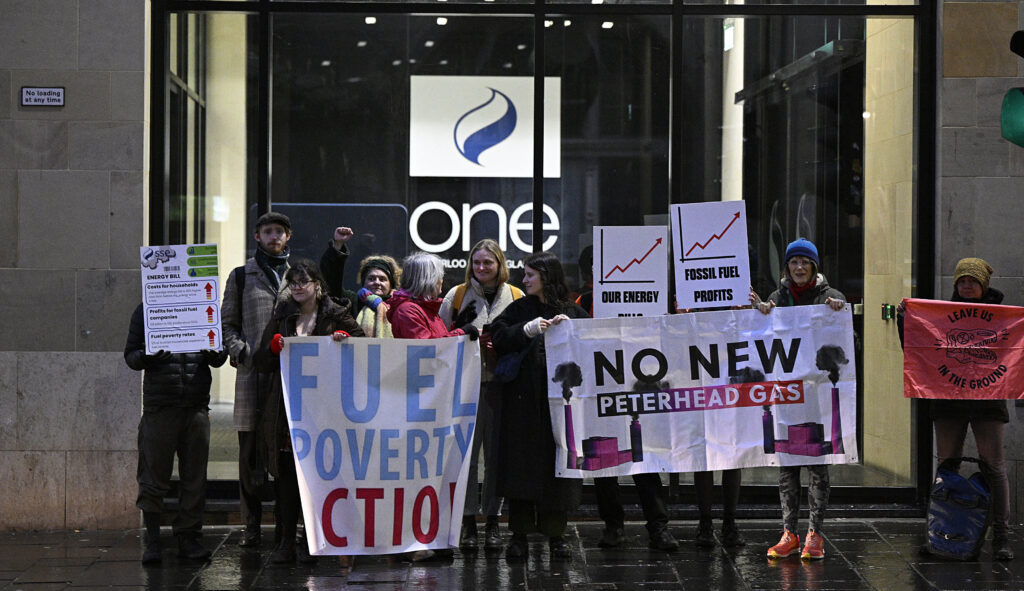
Activists from Friends of the Earth Scotland, Fuel Poverty Action, XR Glasgow and Unite Communities protested in Glasgow on the eve of the new price cap announcement to show our frustration with the system which is handing fossil fuel companies massive profits while squeezing ordinary people dry.
The protest took place outside SSE’s Glasgow offices, highlighting the £8 billion the company has made in profits since the start of the energy price crisis as well as its plans for a new gas burning power station in Peterhead.
Why are energy prices so high?
The main reason that the energy price cap keeps rising is that it’s tied to the price of gas. The price cap is set by the regulator, Ofgem, who base it on the average energy use for a household on the default tariff. The regulator says that the cap is supposed to make sure prices are “fair and that they reflect the cost of energy.”
Global gas prices have been unstable ever since Russia invaded Ukraine in February 2022, but even before then prices fluctuated significantly due to global economic and political changes.
Gas is used to directly heat our homes but also it is burned to generate electricity in places like the existing Peterhead power station. This cost is then reflected in our energy bills, despite Scotland producing over 100% of our electricity needs from renewables.
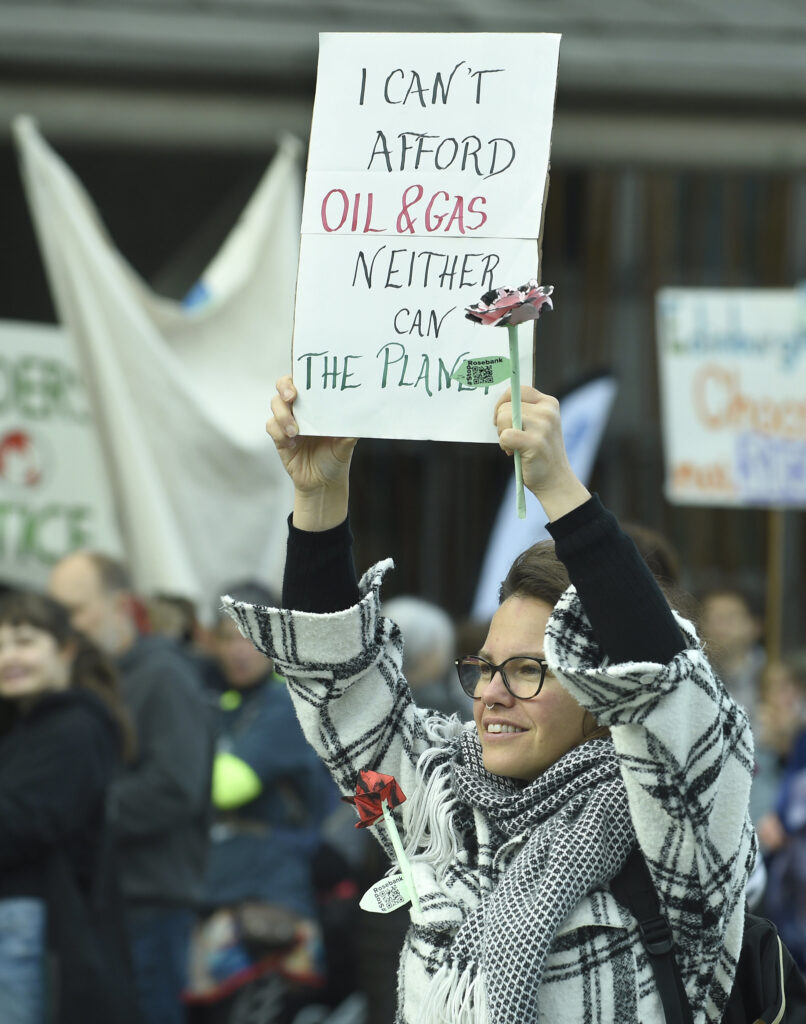
As long as the price of energy is linked to the price of gas, ordinary people will remain vulnerable to spikes in prices like this. Sticking to this system means that the price of powering our lives is being decided by factors way beyond the control of our Government.
The other thing that keeps energy bills high in Scotland is the standing charges. This is the charge for connecting your house to the grid, before any energy is used. Standing charges are different in different regions, and in Scotland they are significantly higher because of how distributed the population is – again, this is despite our huge capacity for producing renewable energy. This means that in Scotland we pay more for energy despite producing more of it.
What does this have to do with fossil fuels in Scotland?
Given that our reliance on fossil fuels is leaving us open to price shocks and exploitation from profiteering fossil fuel companies, you’d think that our government would be doing all it can to move us away from this exploitative system.
However, instead of this the Scottish Government are considering approving a new gas burning power station in Peterhead, which would lock us into relying on gas until 2059. This is years beyond its own net zero target of 2045 when climate pollution should be all but eliminated.
The developers of the new power station claim that technology will capture some of the pollution produced but research has shown that the true climate impact of the development could be up to 5 times worse than SSE and Equinor have claimed in official planning documents.
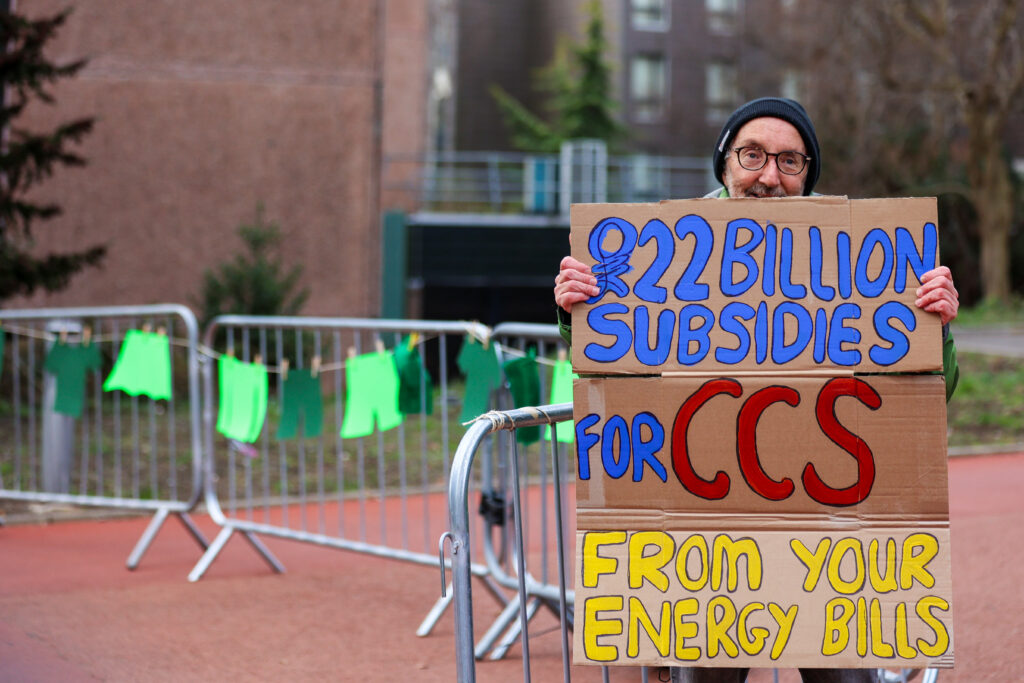
The UK Government has recently announced that it will hand out £22 billion in subsidies for Carbon Capture and Storage technologies over the next 25 years. This is the same penny pinching Government who cut winter fuel allowance for pensioners to try and reduce spending by £1.5billion per year.
Three quarters of this £22billion subsidy will come straight from additional levies on people’s energy bills, driving them even higher in the coming years. This is despite reams of evidence of carbon capture technology consistently underperforming and failing across the world, and the fact that it pushes up the cost of producing electricity from gas in the first place.
What can we do about this?
Groups such as Fuel Poverty Action have long been advocating for the price of energy to be de-linked from the price of gas, which would incentivise cheaper renewables to be prioritised over gas.
They are also lobbying the energy regulator Ofgem to change the way that energy is priced so that everyone receives a basic amount of energy for free, while excess/luxury energy use is priced more highly. This would mean every household gets the essential energy they need to stay safe and well, with higher amounts given to those in greater need due to age, health, disability, children or leaky housing.
Read more about Fuel Poverty Action’s work
We must also call for measures which would drastically reduce the overall demand for energy. Steps such as retrofitting housing which would make them more energy efficient, making it easier and cheaper for people to keep warm. The less energy we use, the less need there is for fossil fuel infrastructure in the first place.
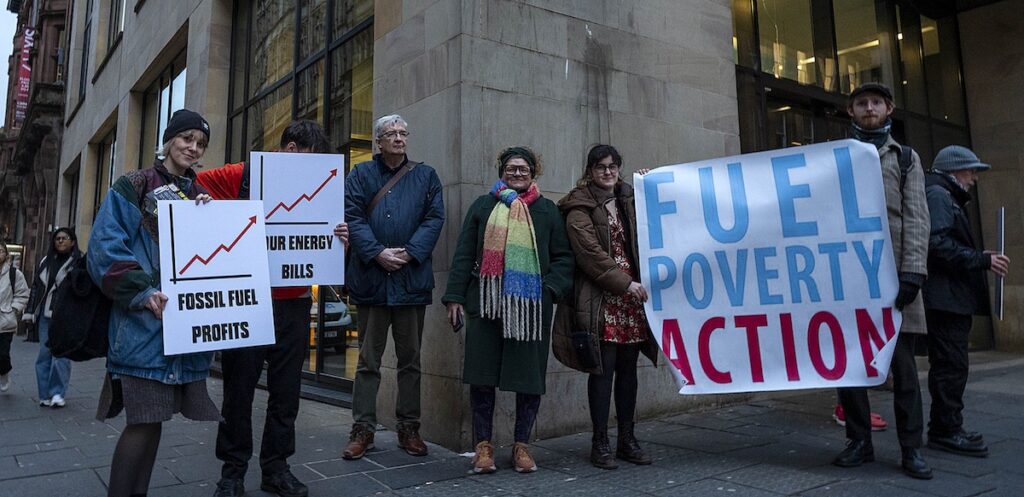
Advocating for public ownership of renewable energy also starts to move us away from the system where greedy companies are profiting from fuel poverty, instead ensuring that ordinary people benefit from the energy that is generated in their area.
Finally, we must continue to oppose new fossil fuel developments where they come up. The more new infrastructure is built, the longer we will be locked into this extractive and harmful energy system.
We knew that we need to end the burning of fossil fuels if we are to respond to the challenge of climate change. But the consistently rising cost of energy from fossil fuels makes this task all the more urgent.
You can get involved in the campaign against the new Peterhead Power Station by emailing activism [at] foe.scot – all kinds of voices and skills are needed to turn the tide away from fossil fuels, and with people power behind us we can win against this destructive industry.
Join our first National Meeting
We’re organising a series of our first monthly national meetings that will enable our movement to learn, share and plot together. We’ll be making connections between our struggles and showing how real solutions can benefit us in lots of ways.
In this session we will think about what we mean by system change, why it is needed and remind ourselves another world is possible and worth fighting for. We’ll also have updates on our campaigns and plenty of time for discussions.
